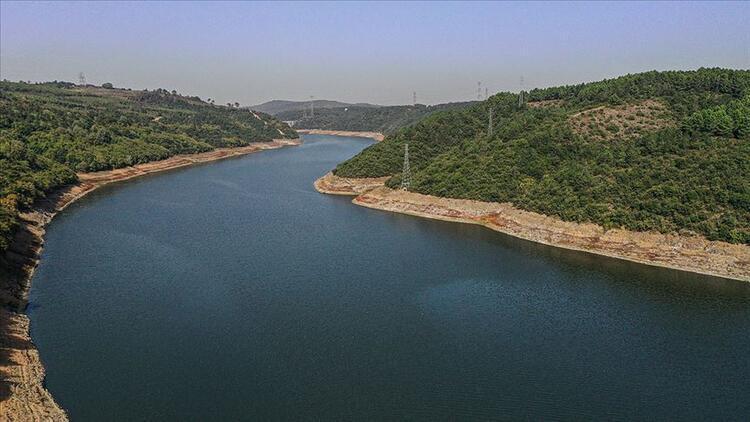
The decrease in the occupancy rate of the dams in Istanbul below 30 percent carries the potential risk for a high percentage of heavy metals such as mercury and iron in its bottom waters, says an expert.
Mustafa Necmi İlhan, a member of the Health Ministry’s Science board, has warned that there could be heavy metals accumulating at the bottom of the dams due to decreasing water levels, drawing attention to the fact that water quality should be thoroughly examined by conducting various physical, chemical and biological tests before supplying it to the network.
The water level in Istanbul’s dams has declined as much as 29.3 percent from a year ago as the city that is home to some 16 million is grappling with the COVID-19 pandemic. This marks the second-lowest water level recorded in the past 10 years.
“The analysis of the water that will be given to the main water channels should be done specifically, and in the meantime, it must be purified from other micro-organisms, especially by chlorination and filtration methods,” İlhan said.
Underlining the risk of water contamination due to the presence of heavy substances, he said: “With the water levels further going low, heavy substances tend to submerge and eventually contaminate the water at the bottom. Therefore, it is better to have high levels of water in the dams.”
İlhan also pointed out that water-borne outbreaks such as hepatitis A and cholera may be in question if adequate care is not taken.
“Heavy metal poisoning can occur as a chronic disease in poorly regulated waters. Humans may be exposed to mercury for too long,” İlhan said.
He reminded that people need to pay extra attention to hygiene rules amid the coronavirus outbreak to avoid the spread by practicing frequent washing of hands, following the advice of health experts.
The water level in all 10 dams of Istanbul has fallen to a critical level, according to the data collected by the Istanbul Water and Sewerage Administration (İSKİ).
However, a government agency in charge of dams had also announced in September that Istanbul was not in danger of a water shortage.
In a written statement, the General Directorate of State Hydraulic Works (DSİ) has said that current levels were sufficient to meet a 120-day demand for the city even if there was no precipitation.
The directorate said they do not expect any water shortage in the near future due to high levels of water accumulated in dams after previous instances of precipitation.